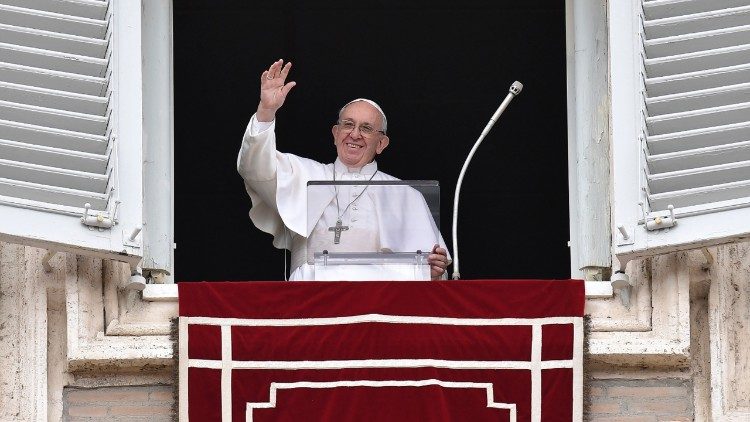At the Angelus, Francies on migration, as shared but possibly prosperous challenge if built on fraternity
At the end of the Marian prayer, the pontiff mentioned "Rencontres Méditerranéennes", which he plans to attend, calling it a "fine initiative" that can "promote paths of peace". The pope urged the faithful to pray for the Ukrainian people and every land "bloodstained" by war. He also noted that the Gospel encourages “forgiveness" to “defuse anger and heal so many maladies of the heart that contaminate society.”
Vatican City (AsiaNews) – At the end of the Sunday Angelus, Pope Francis talked about migration, “a challenge that is not easy” to address, but which “must be faced together” as evinced by recent news.
Noting that next week he will be in Marseille (France) for the conclusion of the Rencontres Méditerranéennes (Mediterranean Meetings), he explained that migration is “essential for the future of all, which will be prosperous only if it is built on fraternity, putting human dignity and real people, especially those most in need, in first place.”
The event in the French city is a “fine initiative that is taking place in important Mediterranean cities, bringing together ecclesial and civil leaders to promote paths of peace, collaboration and integration around the mare nostrum”.
Afterwards, the pope greeted the Sisters of the Most Holy Redeemer of the Ukrainian Greek-Catholic Church, calling on the faithful “to pray for the tormented Ukrainian people, and for peace in every land bloodstained by war.”
This requires forgiveness more than ever, which is also the theme of this Sunday's Gospel.
Before the Angelus prayer, Francis spoke about Matthew's passage according to which, “outside of forgiveness there is no peace. Forgiveness is the oxygen that purifies the air of hatred, forgiveness is the antidote to the poisons of resentment, it is the way to defuse anger and heal so many maladies of the heart that contaminate society.”
In the Gospel story, Jesus forcefully claims that when one forgives one does not weigh up the pros and cons, but one counts “seventy times seven” for “it is good to forgive everything, and always!”
Francis noted that Jesus highlights forgiveness through the parable of the king who forgives a debt of 10,00 talents to his servant, “an impossible debt to settle, even by working a lifetime: yet this master, who recalls our Father, forgives it out of sheer ‘pity’.”
Yet, the “servant, whose debt has been forgiven, shows no mercy towards a fellow servant who owes him 100 denarii. This too is a substantial sum, [. . .] but not at all comparable to the previous figure”.
However, Christ's message “is clear: God forgives incalculably,” and “We cannot repay Him but, when we forgive a brother or a sister, we imitate Him. Forgiving is not, therefore, a good deed that we can choose to do or not do: forgiving is a fundamental condition for those who are Christians.”
“[I]n no way can we recompense his mercy, which he never withdraws from his heart. However, by corresponding to his gratuitousness, that is, by forgiving one another, we can bear witness to him, sowing new life around us.”
For this reason, at the end of his commentary, the pope proposed “a little exercise to you: let us try, now, each one of us, to think of a person who has hurt us, and ask the Lord for the strength to forgive them. And let us forgive them out of love for the Lord: brothers and sisters, this will do us good; it will restore peace to our hearts.”
22/09/2023 15:15







.png)










